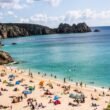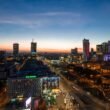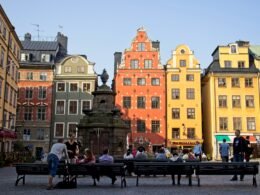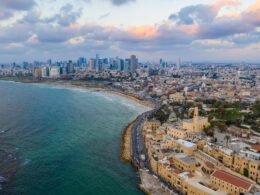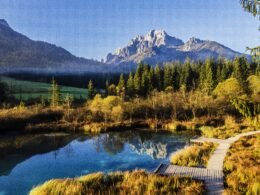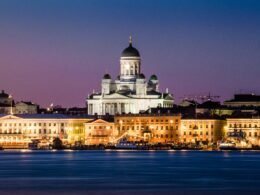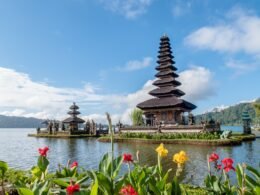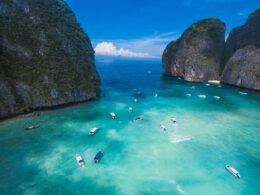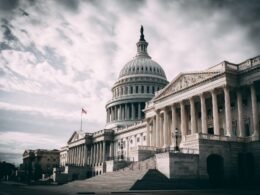Kenya can offer many incredible experiences to those willing to delve deep, but as a country slightly less travelled it can sometimes be a little intimidating trying to decide how to spend your time here.
Through my own experiences in Kenya exploring the must-see places (as well as the places you don’t need to see), I have crafted for you the ultimate 9-day itinerary for getting the most out of this truly incredible country.
Table of Contents
- Day 1: Nairobi – The Capital
- Day 2: Masai Mara – Safari
- Day 3: Masai Mara – Safari
- Day 4: Masai Mara – Safari
- Day 5: Naivasha – Lake Animals
- Day 6: Mombasa – Historic Kenya
- Day 7: Mombasa – Historic Kenya
- Day 8: Diani Beach – Beach and Activities
- Day 9: Diani Beach – Beach and Activities
- Useful tips for travelling in Kenya
- Final thoughts
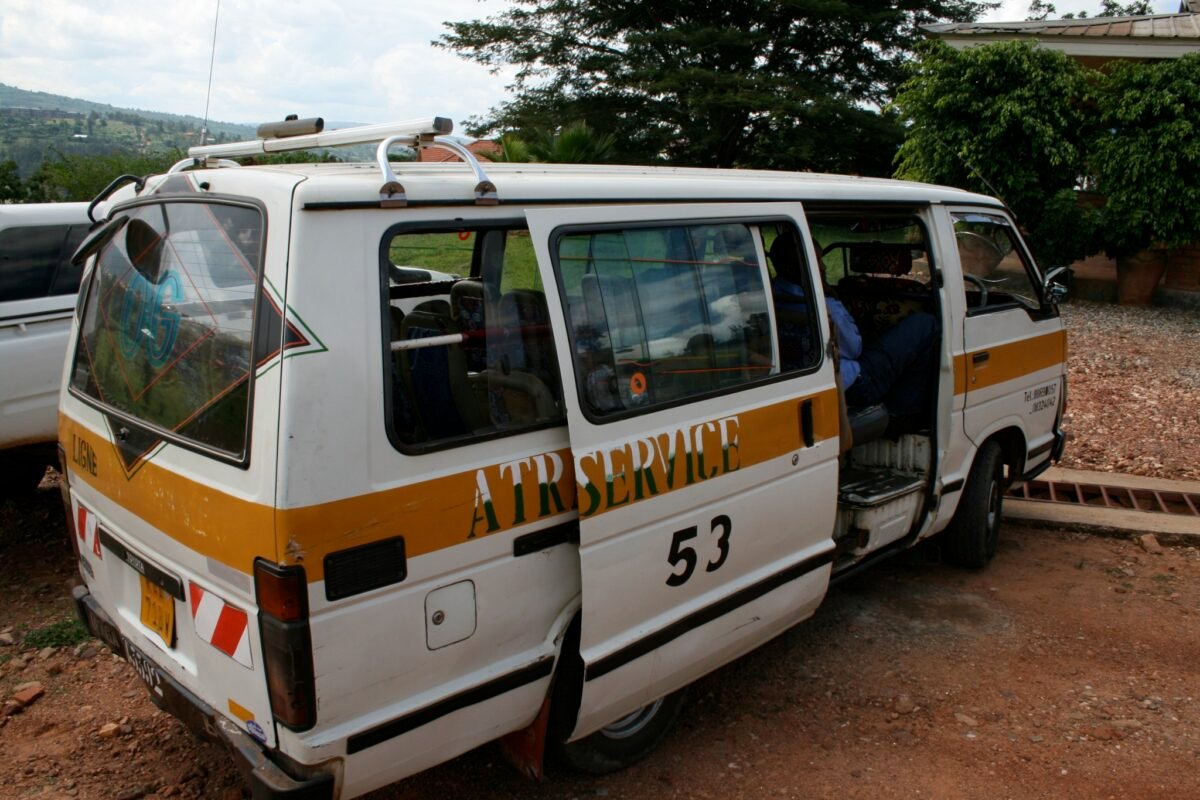
Photo: klndonnelly | Flickr
There are many different options for exploring the wonders of Kenya, you can travel via public transport, rent a car or hire a personal driver for your trip. This makes the epic journey detailed below one that can be enjoyed by those with all budgets and comfort levels. I recommend renting a car or sorting a tour driver for the first 5 days of the trip and then using public transport for the rest due to accessibility.
Day 1: Nairobi – The Capital
As the capital of the country and the largest international airport, it makes sense that you would start your incredible adventure in this bustling city, ripe with a large collection of cultures, foods and sights to see.
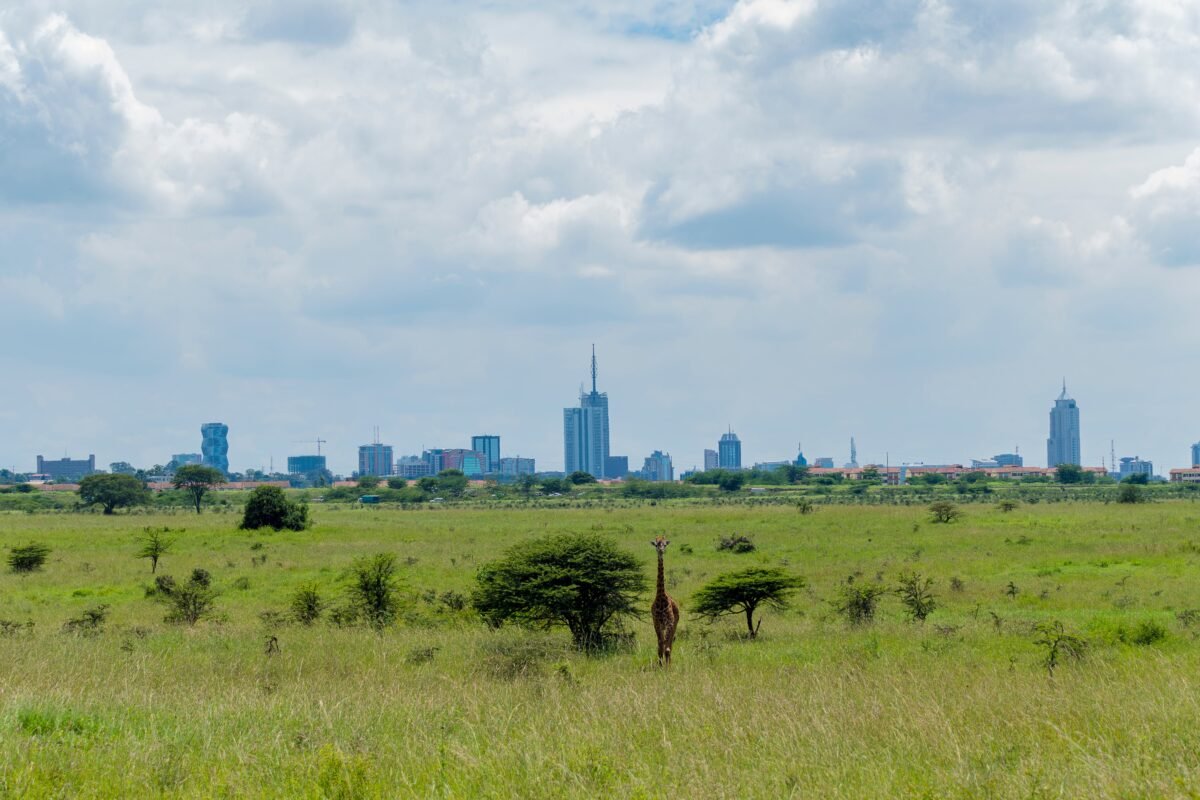
Photo: Murad Swaleh | Unsplash
What to do and see in Nairobi?
Start your day at the Giraffe Centre, an ethical conservation centre designed to help the endangered Rothschild Giraffe. Here you can get up close and personal with wild giraffes, whilst sending your money towards a great cause.
After an hour or so of making friends with the giraffes, it’s now time for the elephants! Sheldrick Wildlife Trust Elephant Orphanage is another ethical non-profit organisation helping young elephants which have lost their parents, often to poachers.
After a long morning experiencing animals, time to head into the city and enjoy the local culture. Head to the Masai Market in the centre of the city to experience local handmade wares of bright colours and excellent craft. From here you can take a short 20-minute stroll through the centre of the city, destination KICC.
The Kenyan International Conference Centre is a tall building with a rooftop viewing platform accessible for only 3-4USD and provides excellent views of the city and surrounding plains. Make sure to bring a photo ID to gain entry!
Where to eat in Nairobi?
The Carnivore Restaurant – For meat lovers wanting to experience local cuisine.
K’Osewe Ranalo Foods – Best for lunch before visiting the market.
About Thyme – Beautiful restaurant with a pretty garden and many vegetarian options.
Where to stay in Nairobi?
- $$$ – Fairmont The Norfolk
- $$ – Fairview Nairobi
- $ – Khweza Bed & Breakfast
Day 2: Masai Mara – Safari
Travel time: 45 minutes flying, 5 hours driving or 7 hours on the matatu/bus (changing at Narok).
Today will mostly be travelling, settling into your accommodation and exploring the local area and culture. I recommend booking your adventure before making the trip, as most Safari companies will arrange transport for you from Nairobi.
For the more adventurous, rent a car and road trip, stopping at many of the incredible viewpoints along the way!

Photo: Henrik Hansen | Unsplash
What to do and see in Masai Mara?
After settling into your accommodation and grabbing some food, explore the area you are in and head to one of the Maasai villages to experience the way of life of the local Maasai tribe. There are many opportunities to learn the cultural practices and traditions of the tribe. Get an early night, as tomorrow will be a big day.
Where to eat in Masai Mara?
As a rural area, there are not many restaurants around, but food options will be provided by your accommodation.
Where to stay in Masai Mara?
Although I recommend booking your safari tour and accommodation all in one package, here are some independent options if you want to go it alone.
- $$$ – Mara Chui Eco-Resort
- $$ – Mara Frontier Hotel
- $ – Maasai Homestay Camping
Day 3: Masai Mara – Safari
It’s now time to safari it up and find some of the animals that make this area famous!
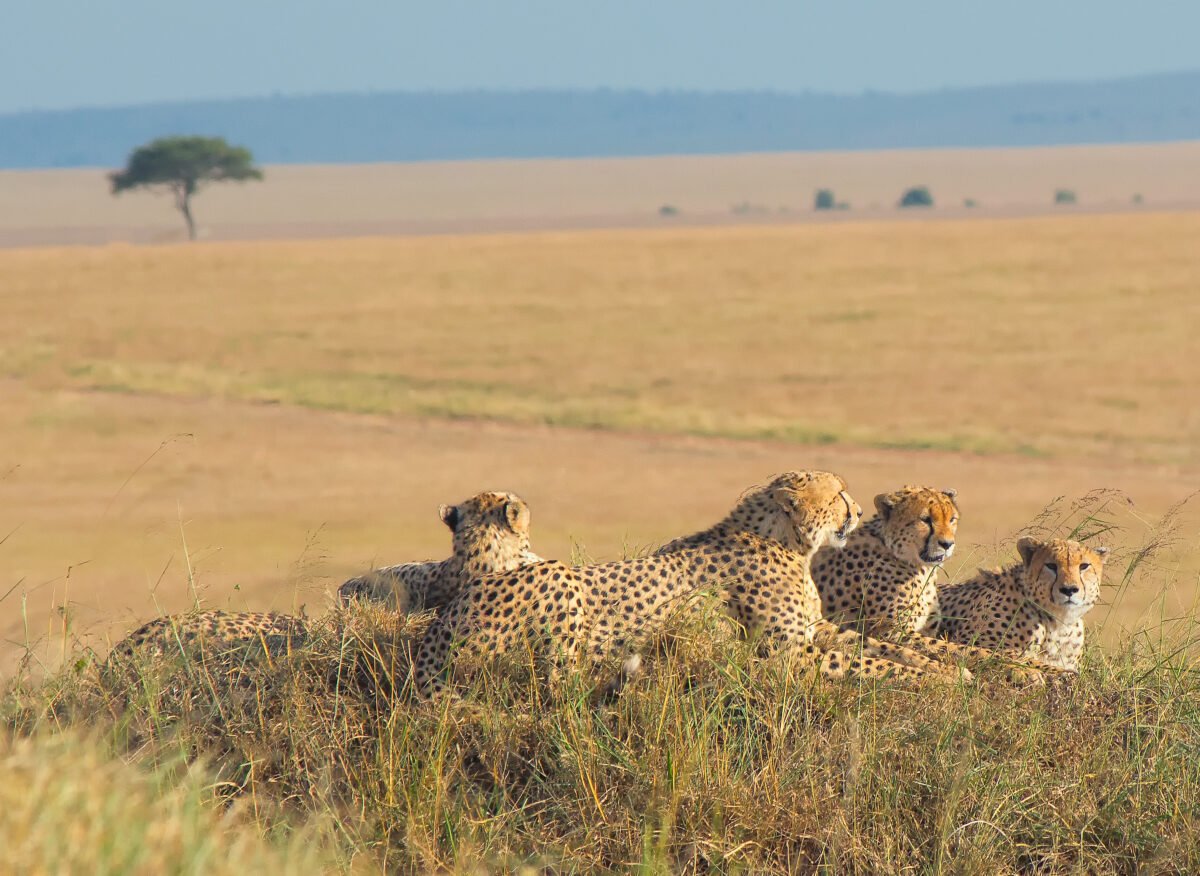
What to do and see in Masai Mara?
Explore the incredible scenery of the Mara and try to spot as many of the big 5 animals as you can! If you are there between July and September then make sure to watch out for the great migration, more information on that can be found in the Masai Mara section of our best options for Safari in 2023.
Try to finish your safari by early afternoon so you can grab some food and have a nap, as tonight is the best day to head out on a night safari! Here you will have a better chance of seeing the elusive leopard!
You can safari by guided drive (recommended), hot-air balloon or your own car.
Day 4: Masai Mara – Safari
After a relaxing lie-in to recover from your night safari, head out into the mara again to keep exploring this incredible area!

Photo: Leonard von Bibra | Unsplash
What to do and see in Masai Mara?
Head out onto another full-day safari to increase your chance of seeing all of the big five! Your tour operator will know which areas you have already explored and which animals you have seen so will take you to some new spots today.
Day 5: Naivasha – Lake Animals
Travel time: Around 4 hours if you self-drive. Add an hour for public transport, you will have to change at Narok again. If you booked your safari and transport together then you can ask them to drop you in Naivasha.
Sitting on the beautiful lake of the same name, this area is a tranquil stopover between Mara and Nairobi.
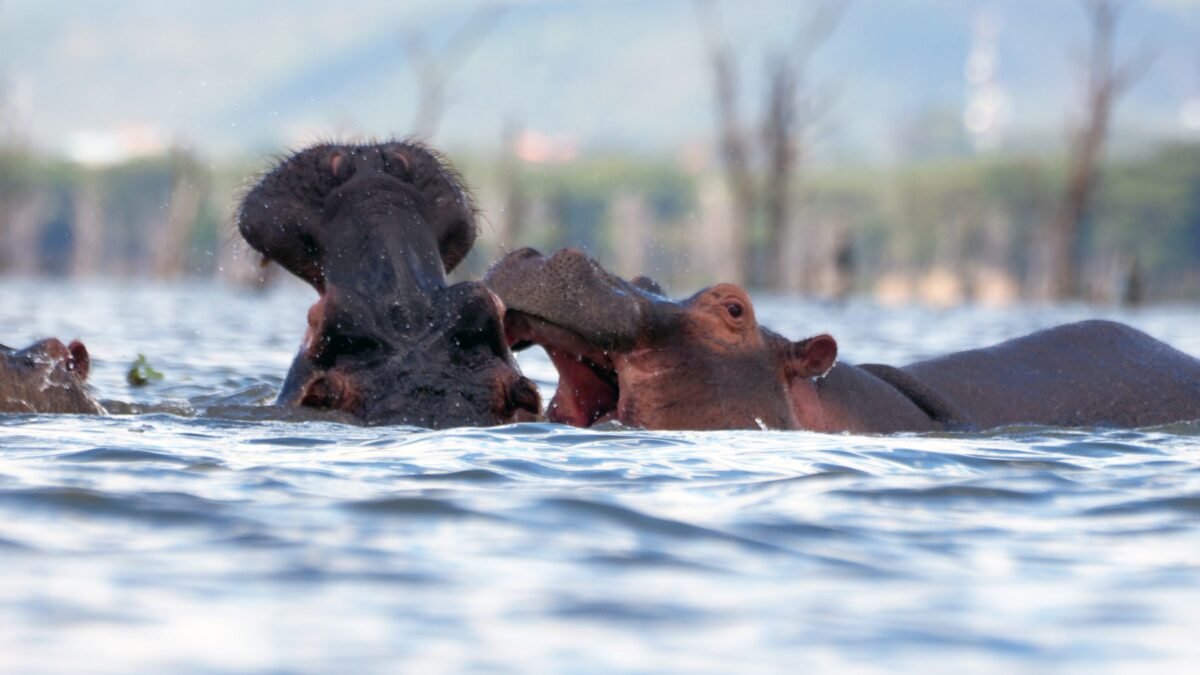
Photo: Tawanda Kanhema | Unsplash
What to do and see in Naivasha?
Now you’ve seen the incredible land mammals of the African plains, it’s time to head to the water. You can take a boat cruise (more budget-friendly than it sounds) over the lake to get up close to the hippos and crocodiles that reside in the area. After this, explore the cute town that lines the lake, there are many matatus that conveniently run up and down for hard-to-walk places.
Where to eat in Naivasha?
Ranch House Bistro
Geothermal Club Canteen
Gabby’s Cake House & Cafe
Where to stay in Naivasha?
- $$$ – Lake Naivasha Resort
- $$ – The Vasha Elegant
- $ – Stara Lodge
Day 6: Mombasa – Historic Kenya
Travel time: Around 2 hours from Naivasha to Nairobi and then a 1-hour flight to Mombassa. Internal flights are reasonably inexpensive.
Take a morning stroll along the lake shore before heading back to Nairobi. You can easily get there via public transport, or use this as an opportunity to return your rental car before heading to Mombasa.

Photo: Casey Hugelfink | Flickr
What to do and see in Mombasa?
You will probably be arriving here in the afternoon so take a stroll around the old town of Mombasa to get a feel of the area. As you walk, head for the waterfront and look out for the beautiful street art dotted around the town.
Where to eat in Mombasa?
Tamarind Restaurant and Dow
Yul’s Aquadrom
Tarboush Cafe
Where to stay in Mombasa?
- $$$ – Sarova Whitesands Beach Resort & Spa
- $$ – CityBlue Creekside Hotel and Suites
- $ – Akogo House (an extremely affordable hostel dedicated to raising funds for street children in the city)
Day 7: Mombasa – Historic Kenya
Now it’s time to really deep-dive into the incredible historic town! Mombasa is the country’s oldest city and is still the most active port. As it was the capital until 1906, there is lots to explore in Kenya’s second-largest city.

Photo: Ninara | Flickr
What to do and see in Mombasa?
Today you will be walking a lot and learning about the history of Mombasa. Wander around the old harbour, the oldest part of the city and you will notice a strong Arab influence in the area. As you walk through this area, you will notice the buildings transform into a more Portuguese style from the 1500s. A great example of this is Fort Jesus, a must-see in Mombasa.
After visiting the fort, wander through Treasury Square and towards the many religious buildings of the area, such as the Mombasa Memorial Cathedral, Swaminarayan Temple and Jain Temple, all incredible sights in themselves.
Whilst in the old town, head to the local Market Hall for some food and to smell the sensory wonder that is Kenyan Spices. Here you can also grab a refreshing coconut, expertly sliced open by the vendors.
If you need to take a break from the heat, then hit up Makadara Gardens, a beautiful park in the centre of town where you can experience the rare plants that grow in the area and take shade under a tree.
Day 8: Diani Beach – Beach and Activities
Travel time: Around 1 hour. Take the free ferry from Mombasa to Likoni and then a matatu to Diani Beach. You can also take a bus the entire way, but these are difficult to find and you will need to exit the bus on the ferry.
Now you’ve seen the animals, you’ve experienced the history, but there’s one major attraction of Kenya that some people wrongly miss off their Kenyan Itinerary…the incredible beaches!

Photo: Nadine Murphy | Unsplash
What to do and see in Diani Beach?
The never-ending stretch of soft, white-sand beach is really something to behold! Couple this with a cute town and crystal clear waters with thriving reefs, and you have a holiday destination in which you could easily spend the whole 9 days!
Take a morning stroll around the town of Diani Beach and experience the cute stores and cafes before heading down to the beautiful white sand beaches to relax and unwind, thinking about all of the fantastic things you have done so far!
Where to eat in Diani Beach?
Africana Seafood Restaurant – The freshest and most personalised eating experience! There is no menu, you simply order what you want (with their suggestions) and they go straight to the fisherman/market to get the ingredients fresh! It’s best to order here around 1.5 hours before wanting to eat but it’s a great way to try lobster or octopus for cheap!
Nomad Beach Bar & Restaurant
Sails Beach Bar & Restaurant
Where to stay in Diani Beach?
- $$$ -Amani Luxury Apartments
- $$ – Sheba Cottages – Diani Beach
- $ – Diani Backpackers (One of the best hostels I’ve personally stayed in around the world)
Day 9: Diani Beach – Beach and Activities
More beach time, or if you don’t fancy just lounging around, try out one of the many activities in the area listed below.
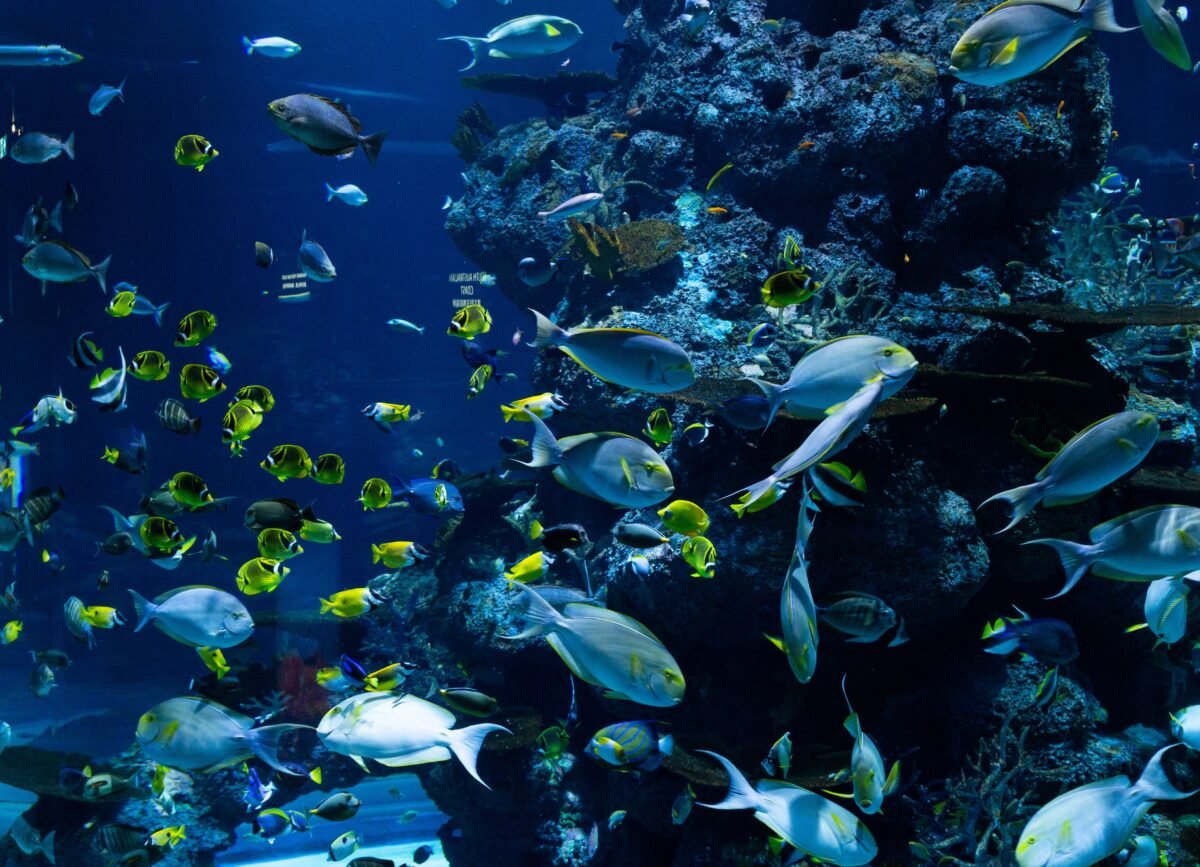
Photo: Hung Tran | Pexels
What to do and see in Diani Beach?
This is the last day of your trip, this afternoon you will be heading back to Mombasa where you can catch a flight wherever you need to go, but first, why not take a snorkelling or diving trip to experience Kenya’s tropical reefs? The crystal clear waters and busy reefs offer a unique tropical experience, enjoying incredibly beautiful fish in a variety of colours.
You can also surf, kite surf or take a glass bottom boat tour. If these aren’t your thing, then why not lie on the beach and have a massage under the sweet sun?
Useful tips for travelling in Kenya

The best time to visit Kenya:
July – September is the dry season and is when the great migration takes place, otherwise January – March is also a good time.
What is the currency of Kenya?
Kenyan Shilling. 1 USD = 119.84 KES (At the time of writing).
Can you drink tap water in Kenya?
The tap water is inconsistent so it is recommended to drink bottled or filtered water.
The language of Kenya:
Swahili and English.
Is Kenya safe?
Kenya can be a safe place to travel if you are aware of the risks. Don’t walk around alone after dark, and ask at your hotel about which areas to avoid totally. Another non-physical risk is scams, many people pose as tour guides or even police officers in order to get money from tourists. These scams are easy to spot when you know what to look for and so I recommend doing some research before heading out.
Final thoughts

Kenya is an incredibly diverse country with some of the most magnificent animals and scenery you will ever see! Make sure to fully immerse yourself in the local culture in order to get the most out of your experience, after all, why travel if not to get out of your comfort zone and learn new things?
Whilst you are on the African continent, why not head south and explore the wonders of South Africa, or north to experience the unique culture of Morocco?



